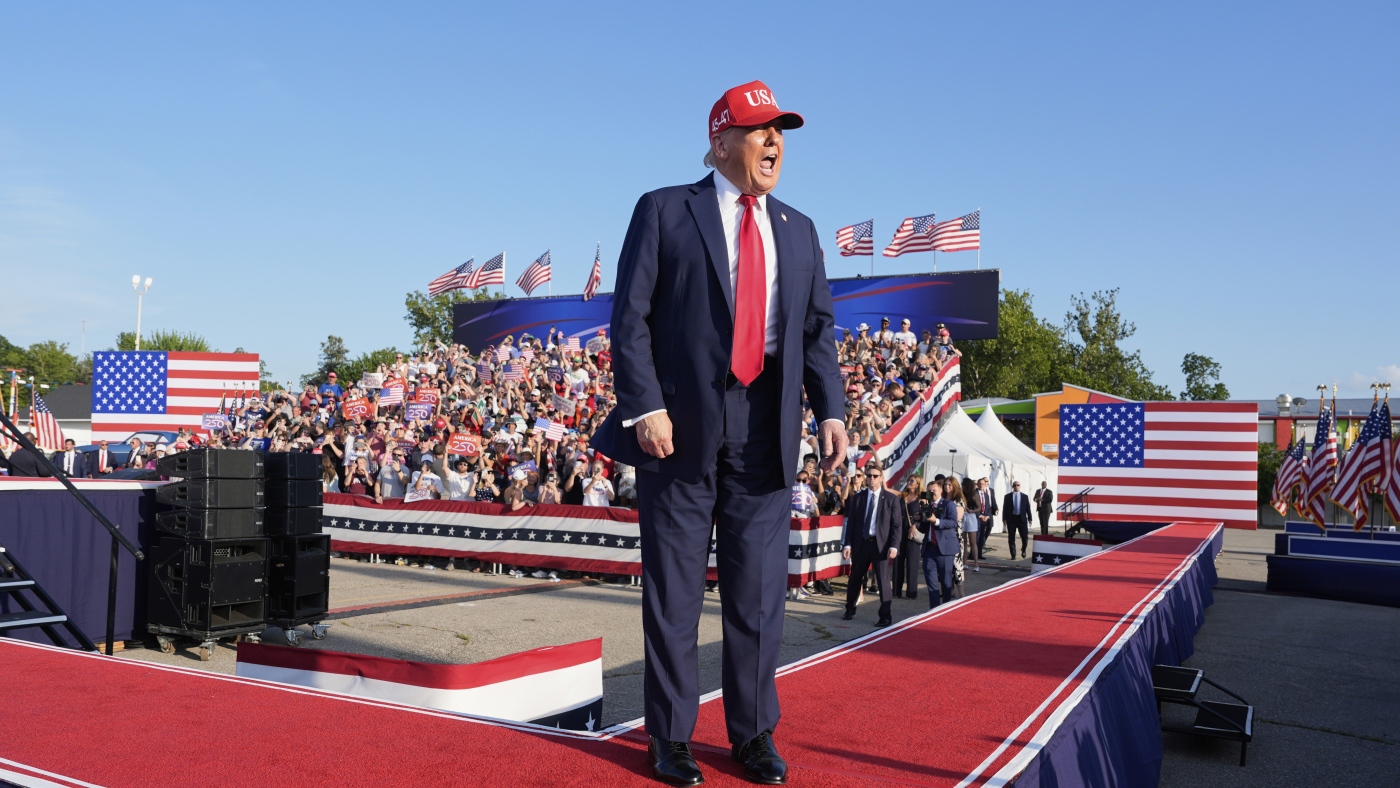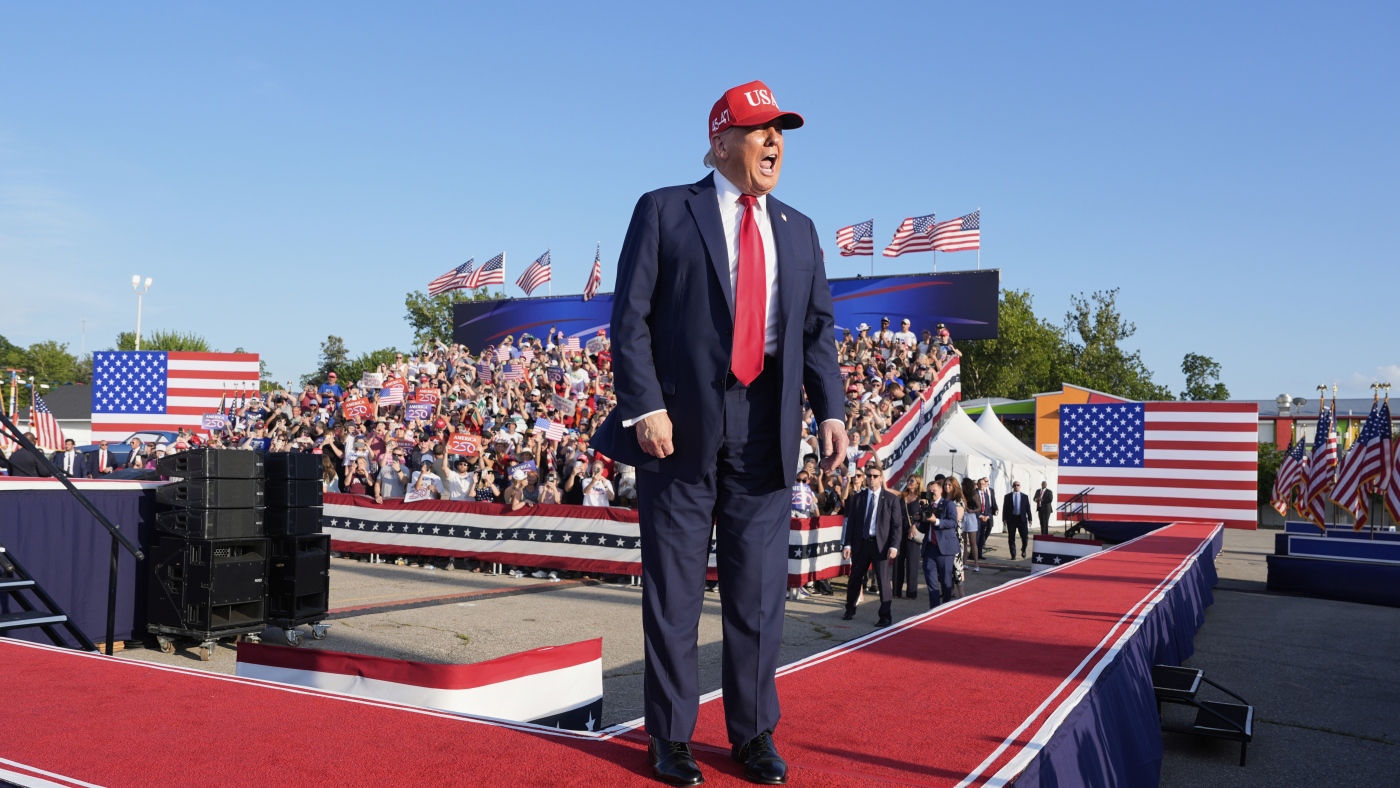The proposal to host a UFC fight on the White House grounds, as suggested by former President Donald Trump, has sparked a wide range of reactions, from amusement to outrage. This idea, floated during a rally in Iowa, is framed as a celebration of America’s 250th anniversary in 2026. However, the notion of a mixed martial arts event on such a historically significant site presents a stark contrast to traditional presidential decorum. This analysis explores the motivations behind the proposal, the logistical and security challenges it poses, and the broader cultural implications of such an event.
The Genesis of the Idea: Spectacle and Sentiment
Trump’s proposal is emblematic of his approach to public engagement—bold, attention-grabbing, and designed to generate buzz. The stated reason for the event is to commemorate the 250th anniversary of American independence, but the underlying motivations likely stem from Trump’s long-standing relationship with the UFC and its president, Dana White. White has been a vocal supporter of Trump’s presidential campaigns, and the two share a mutual admiration. This event would not only be a spectacle but also a nod to their personal and political alliance.
Beyond personal connections, Trump has a history of orchestrating grand, often controversial, events. From his real estate ventures to his reality TV career and political campaigns, Trump thrives on creating memorable moments. A UFC fight on the White House lawn would undoubtedly be a landmark event, ensuring its place in American history, regardless of public opinion. The sheer audacity of the idea clashes with the traditional image of presidential decorum, guaranteeing the attention Trump seeks.
Trump has envisioned a “full fight” with an attendance of 20,000 to 25,000 people, a scale that would require extensive planning and resources. The South Lawn, the most plausible location for such an event, is meticulously maintained for ceremonial purposes, not sporting events. The idea of transforming this space into an arena for mixed martial arts raises numerous logistical and security concerns.
Logistical Nightmares: More Than Just “a Lot of Land”
While Trump casually mentioned that “We have a lot of land there,” the reality of staging a UFC fight on the White House grounds is far more complex. The South Lawn, designed for ceremonial events, would require significant modifications to accommodate a sporting event of this scale.
Infrastructure: Constructing a temporary arena for 20,000 to 25,000 spectators would necessitate extensive infrastructure, including seating, lighting, sound systems, and potentially climate control. This would involve elaborate planning, permitting, and environmental impact assessments, likely facing opposition from preservationists and local residents.
Security: Security would be a paramount concern. Screening thousands of attendees for weapons and prohibited items, managing crowd control, and protecting fighters and dignitaries would require a massive security presence, involving multiple law enforcement agencies. The White House is already a high-security zone, and adding a large-scale event would exacerbate these challenges.
Accessibility: Transporting thousands of people to and from the event would create significant traffic congestion and require meticulous transportation planning. The restricted access to the White House would further complicate these efforts.
Environmental Impact: The environmental impact of such an event would be substantial. The sheer volume of people, equipment, and waste generated would pose a significant risk to the lawn and surrounding areas, potentially causing long-term damage.
Security Under Siege: A Fortress Breached?
The White House is not only a symbol of American power but also a high-value target. Hosting a UFC fight, with its inherent potential for chaos and violence, would significantly elevate security risks.
Increased Threat Level: The event would attract a diverse crowd, including potential troublemakers and individuals with malicious intent. This would create opportunities for terrorist attacks, protests, and other forms of disruption. The concentration of people and the high-profile nature of the event would make it an attractive target for those seeking to make a statement or cause harm.
Strain on Resources: Securing the event would require diverting significant resources from other critical security operations, potentially leaving other areas vulnerable. The already strained resources of law enforcement and intelligence agencies would be further stretched, raising concerns about the overall security posture of the nation.
Perception of Vulnerability: Even if the event were successfully secured, the image of a sporting event taking place on the White House grounds could project an image of vulnerability. This would undermine the symbolism of the White House as a secure and protected space, potentially eroding public confidence in the government’s ability to safeguard its most sacred sites.
Cultural Collision: Decorum vs. Entertainment
Beyond the logistical and security challenges, Trump’s proposal raises fundamental questions about the role of the White House and the values it represents.
Erosion of Dignity: Critics argue that hosting a UFC fight would erode the dignity of the presidency and the White House, transforming it into a venue for crass commercial entertainment. The White House has long been a symbol of American democracy and the highest office in the land, and its use for a sporting event would be seen by many as a degradation of its historical significance.
Conflicting Values: The violence inherent in UFC clashes with the values of peace, diplomacy, and reasoned discourse that the White House is supposed to embody. The White House has traditionally been a place for diplomatic negotiations, policy discussions, and ceremonial events, not for spectacle and entertainment. The juxtaposition of these values would be jarring and potentially damaging to the institution’s reputation.
Message to the World: Staging a UFC fight at the White House would send a message to the world about American culture and values. Some worry that it would reinforce negative stereotypes about American violence and aggression, portraying the nation as a place where spectacle and entertainment trump diplomacy and decorum.
A Populist Appeal?: On the other hand, proponents might argue that hosting a UFC fight would be a way to connect with a broader audience and demonstrate that the White House is accessible to all Americans, not just the elite. This could be seen as a populist gesture, appealing to Trump’s base and challenging traditional notions of presidential decorum. However, the risks of such an event outweigh the potential benefits, and the cultural impact would likely be more damaging than beneficial.
Political Ramifications: A Divisive Move
The proposal has already ignited political controversy, with Democrats largely condemning the idea and some Republicans offering tepid support. The political fallout from this proposal could have lasting implications for Trump’s legacy and the future of the presidency.
Further Polarization: The proposal is likely to further polarize the American public, exacerbating existing divisions over cultural and political values. The debate over the event would become a rallying cry for both sides, deepening the partisan divide and making it more difficult to find common ground on other issues.
Campaign Fodder: Regardless of whether the event actually takes place, it will undoubtedly be used as campaign fodder in future elections. Both sides will use it to rally their supporters, with Democrats portraying it as a sign of Trump’s disregard for tradition and Republicans framing it as a bold move to connect with the American people.
Legacy Defining Moment: The decision to host or reject the proposal could have lasting implications for Trump’s legacy. If he were to push forward with the event, it would serve as a tangible example of his approach to governance and his vision for America. If he were to abandon the idea, it would be seen as a concession to critics and a retreat from his signature style of leadership.
The Shadow of Reality: Will it Actually Happen?
Given the numerous challenges and controversies surrounding the proposal, it remains unclear whether it will ever come to fruition. Even if Trump were to win the presidency again, he would face significant obstacles in implementing his plan.
Logistical Hurdles: Overcoming the logistical and security challenges would require a massive investment of time, money, and resources. The sheer complexity of the event would make it difficult to execute, even with the full support of the government.
Political Opposition: Strong opposition from Democrats, preservationists, and other groups could derail the project. The political backlash would be significant, and the administrative hurdles would be formidable. The event would likely face legal challenges, public protests, and media scrutiny, making it nearly impossible to proceed.
Shifting Priorities: Even if Trump remains committed to the idea, other priorities could emerge that take precedence. The demands of governance, foreign policy, and domestic issues would likely overshadow the spectacle of a UFC fight, making it a lower priority in the grand scheme of things.
Despite these obstacles, Trump’s track record of defying expectations suggests that nothing can be ruled out. The very fact that the proposal has been made is a testament to his willingness to challenge norms and push boundaries. The idea, whether realized or not, has already etched itself into the ongoing narrative of American identity, raising profound questions about the balance between tradition and modernity, decorum and entertainment, and the very definition of what it means to be American in the 21st century.








